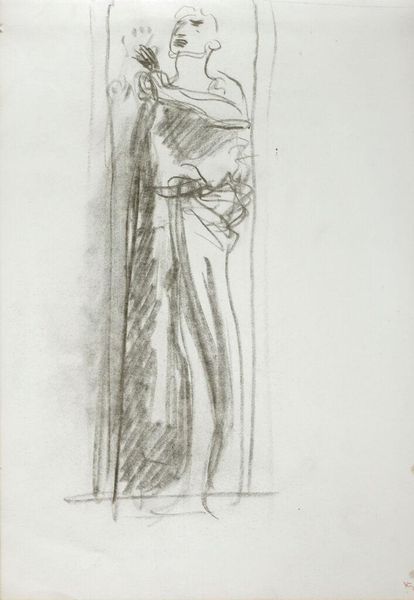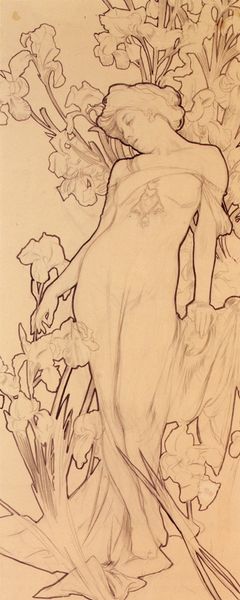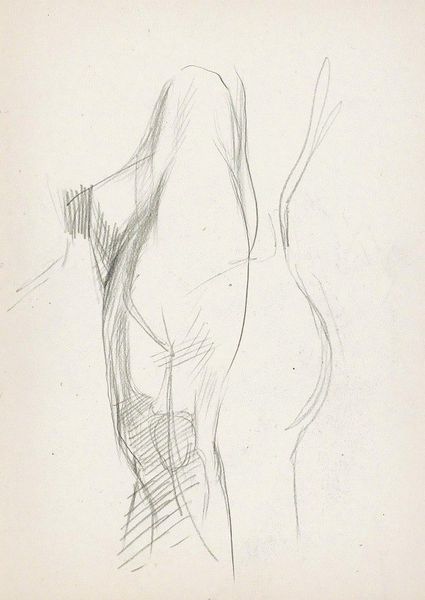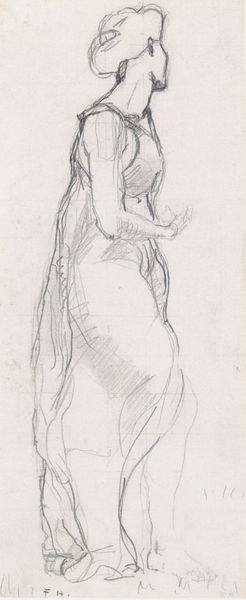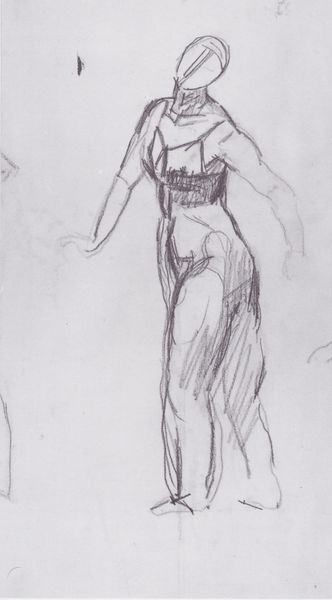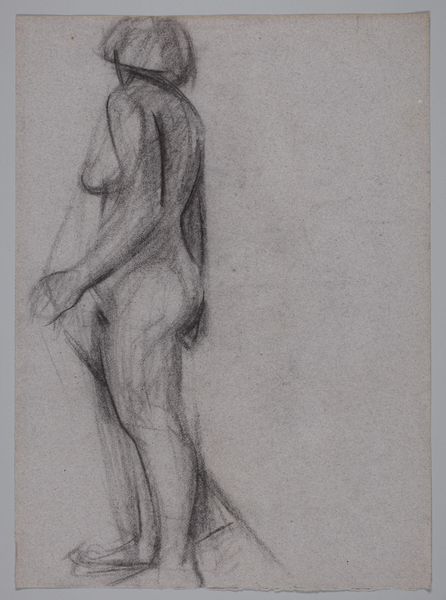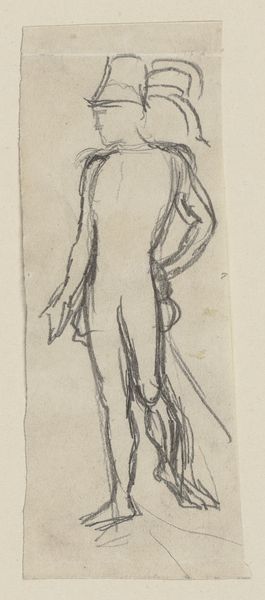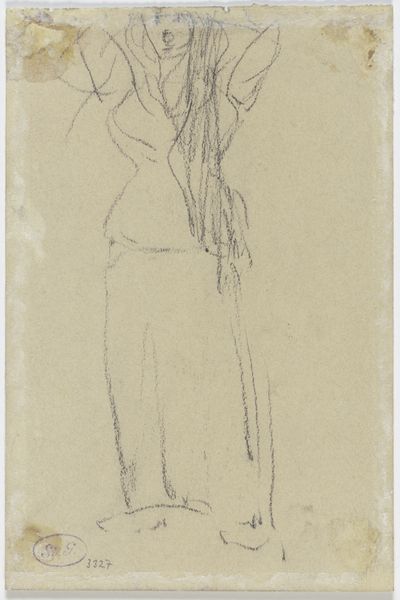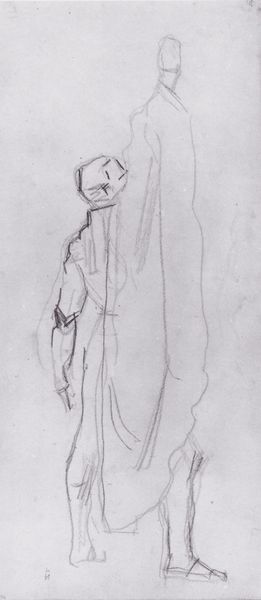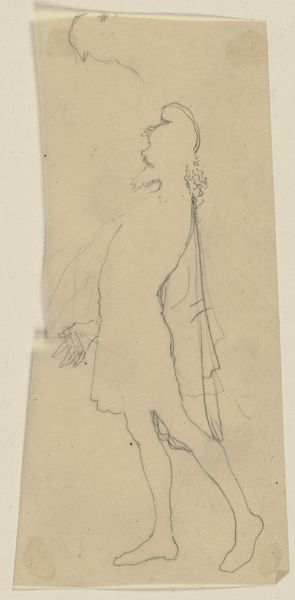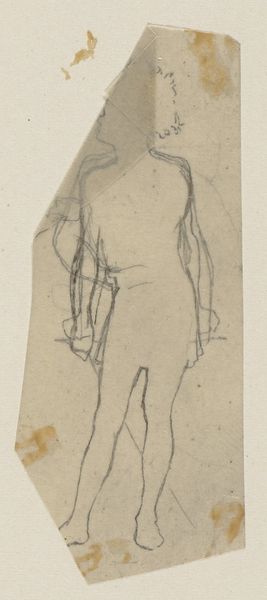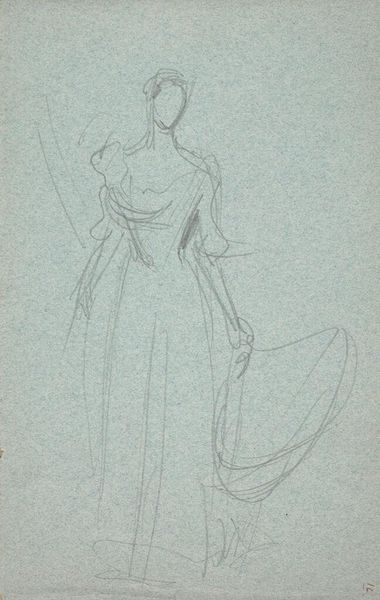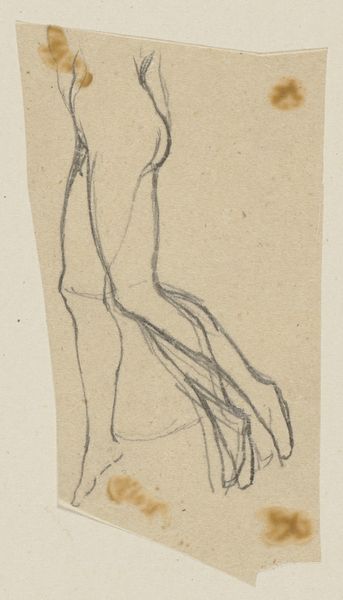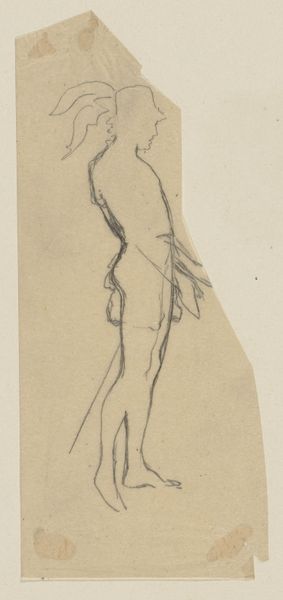
drawing
#
portrait
#
drawing
#
art-nouveau
#
figuration
#
sketch
#
mythology
#
line
Dimensions: 41 x 25.5 cm
Copyright: Public domain
Curator: This is "Figure study of Isolde" by Koloman Moser, created around 1915. It's a delicate pencil sketch. Editor: There's an immediate sense of yearning here, of desperate supplication. The figure is reaching out, but to what, or whom? The lightness of the sketch emphasizes this ethereal quality. Curator: Right. Isolde, as in, Tristan and Isolde. Moser was deeply entrenched in the Secession movement in Vienna, so these medievalist romances filtered through a lens of symbolism and, importantly, sexual politics. Consider the opera—its disruptive treatment of adultery and female agency. This sketch touches upon those themes. Editor: You're spot-on about the disruptive potential. Isolde embodies that challenge to traditional societal norms through her love, her actions. Even the sketch style feels urgent, not precisely defined, perhaps alluding to the unstable ground upon which she stands. It's powerful. Notice how the elongated form adds to a sense of being otherworldly, mythic? Curator: It’s key to see this work in context of the time. Artists and intellectuals questioned societal constraints. Characters like Isolde offered a channel to address gender roles and power dynamics through art. Remember, it was during this era of rising feminist activism. Moser taps into this, subtly embedding the anxieties and desires within his subject. Editor: What is she reaching for, though? Love? Freedom? Maybe an escape from fate? I see those outstretched arms mirroring a very potent internal drama. The sketch focuses us on Isolde as a conduit for broader desires and challenges—and perhaps to the complex, even tragic symbols that arise as women are thrust into opposition. Curator: Exactly! And it invites a relevant, even necessary reflection, echoing the period of origin and informing our current critical environment. The historical roots provide strength when investigating themes such as identity and rebellion, now. Editor: Agreed, there's such resonance, it persists because we see ourselves and our struggles reflected. That timeless quality is very impressive. I hadn't expected that sort of emotional hit from such a fleeting work. Curator: Yes. Thank you for providing that essential insight! Editor: My pleasure. This has helped me understand new potential to interpret art over a long span of years.
Comments
No comments
Be the first to comment and join the conversation on the ultimate creative platform.
